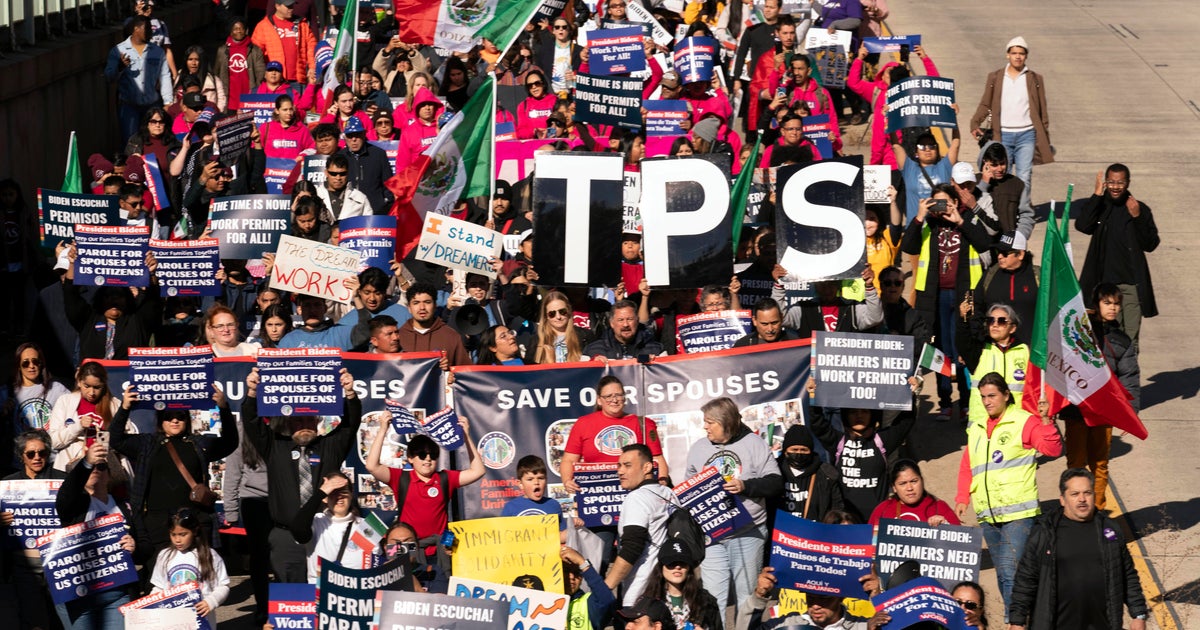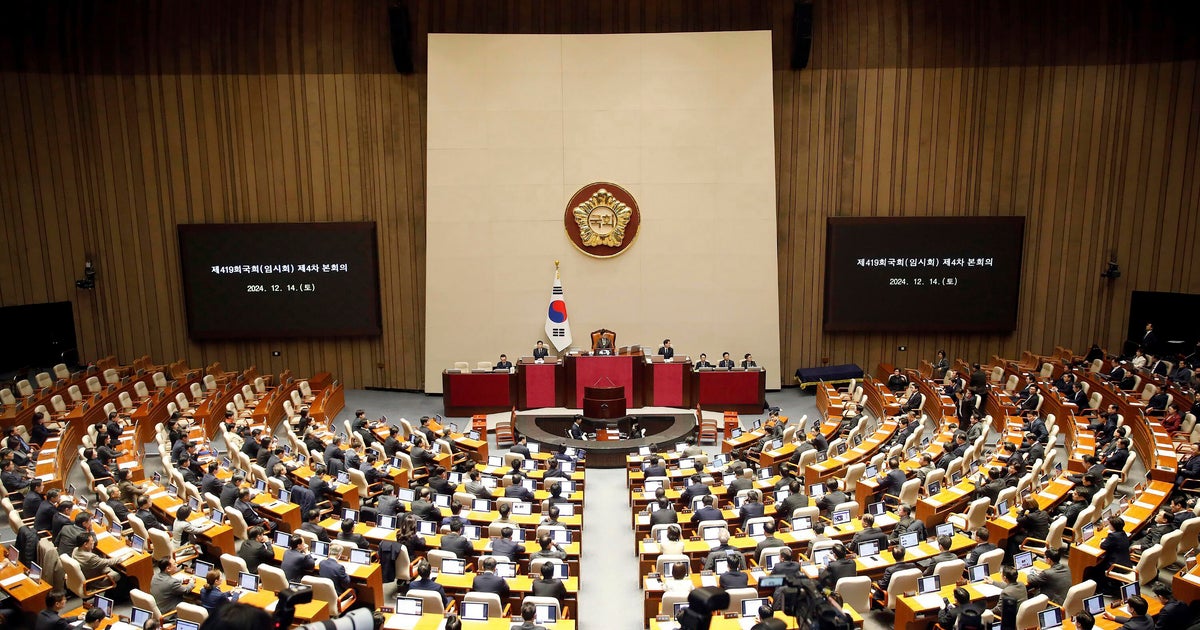CBS News
FBI’s Biden informant accused of lying as far back as 2016

Watch CBS News
Be the first to know
Get browser notifications for breaking news, live events, and exclusive reporting.
CBS News
U.S. begins to retaliate against China over hack of telecom networks

The Biden administration is beginning to retaliate against China for its sweeping hack of U.S. telecommunications companies earlier this year.
Last week the Commerce Department issued a notice to China Telecom Americas, the U.S. subsidiary of one of China’s largest communications firms, alleging in a preliminary finding that its presence in American telecom networks and cloud services poses a national security risk. The company has 30 days to respond, although the Commerce Department has not said what action it plans to take next.
The New York Times was the first to report the action, which is a direct response to China’s infiltration of telecom networks earlier this year. The China-backed hacking group known as Salt Typhoon penetrated the networks of numerous companies including Verizon, AT&T and Lumen Technologies, a U.S. official familiar with the matter told to CBS News in October.
It’s unclear what the impact on China Telecom would be, since the FCC has already limited China Telecom Americas’ ability to operate in U.S. communications infrastructure. In October 2021, the FCC revoked its license to provide phone services in the US.
The FCC found that China Telecom “is subject to exploitation, influence, and control by the Chinese government and is highly likely to be forced to comply with Chinese government requests without sufficient legal procedures subject to independent judicial oversight.”
China Telecom Americas has not responded to requests for comment.
U.S. law enforcement and intelligence officials are continuing to try to learn more about the scope of the hack, which targeted U.S. surveillance capabilities used for operations including wiretaps. U.S. intelligence officials routinely seek court authorization to use telecom systems like those targeted in the breach to collect information for law enforcement or national security probes.
One fear is that the cyberattacks could have allowed the hackers to access information about ongoing U.S. investigations — including those tied to China — through the collection of sensitive data and techniques.
China’s incursions into U.S. critical infrastructure — including water treatment plants and the electrical grid — have lawmakers on Capitol Hill and the incoming Trump administration warning of a more aggressive retaliatory posture going forward.
Rep. Mike Waltz, designated by President-elect Trump to be national security adviser, told Margaret Brennan on “Face the Nation” Sunday, “We need to start going on offense and start imposing, I think, higher costs and consequences to private actors and nation state actors that continue to steal our data, that continue to spy on us.”
Last month, Rep. Jim Himes, Democrat of Connecticut and the ranking on the House Intelligence Committee, issued a similar warning.
“We’re not just going to name and shame,” he said on “Face the Nation.” “We are going to go into their networks and give as good as we got.”
CBS News
Federal Reserve cuts interest rate again

Watch CBS News
Be the first to know
Get browser notifications for breaking news, live events, and exclusive reporting.
CBS News
Migrants with temporary legal status ask Biden for help before Trump takes office

Construction worker, gardener, waiter, painter, realtor — these are the jobs Mardoel Hernandez has held as a Honduran immigrant living in the U.S. for over 20 years. Hernandez, a teacher who fled his home country in the 1990s, was granted legal status and a work permit under the Temporary Protection Status program.
The program, created by Congress and signed into law by President George H.W. Bush, allows immigrants to temporarily remain in the U.S. if they’re from countries designated as unsafe. TPS allows migrants to apply for work permits and shields them from deportation, but does not offer a pathway to citizenship.
Now, Hernandez is joining other TPS holders across the country in a hunger strike to pressure Mr. Biden to extend protected status for immigrants at risk for deportation, since President-elect Donald Trump has promised to revoke the program upon taking office.
“We are asking President Biden to leave a strong legacy among the immigrant community and honor his word,” Hernandez told CBS News. “He promised us so much.”
As part of the hunger strike organized by the National TPS Alliance organization, immigrants say until Mr. Biden responds, they will abstain from food in sympathy with the deprivation experienced in their home countries.
“In 2017, I began packing my bags when Trump canceled TPS for Hondurans.” Hernandez said. “My only option now is to rally and hope that Biden will notice and act.”
During an interview in October with NewsNation, Trump was asked about Haitians in Springfield, Ohio, and whether he’d revoke TPS.
“Absolutely, I’d revoke it, and I’d bring them back to their country,” he responded. This followed debunked claims from Trump on the campaign trail that Haitian immigrants living in Springfield were killing and eating pets of local residents.
“President Trump will enlist every federal power and coordinate with state authorities to institute the largest deportation operation of illegal criminals, drug dealers, and human traffickers in American history while simultaneously lowering costs for families,” Karoline Leavitt, Trump transition spokeswoman, told CBS News in a statement, when asked what Trump plans to do with TPS holders and whether these immigrants would be part of his overall deportation plans.
“The American people re-elected President Trump by a resounding margin giving him a mandate to implement the promises he made on the campaign trail, like deporting migrant criminals and restoring our economic greatness. He will deliver.” Leavitt said. But she did not address what the Trump administration plans to do with migrants who have temporary legal U.S. status.
According to the latest data, there are over 850,000 TPS holders, as of March 2024. Around 350,000 Venezuelans, 200,000 Haitians and 180,000 Salvadorans make up the largest group of beneficiaries.
Approximately 300,000 TPS holders reside in Florida, while Texas has nearly 95,000, and New York and California each have around 68,000.
TPS holders are provided renewable relief for up to six, 12 or 18 months, but without an extension, many will begin losing their legal status in 2025. Protections for Salvadorans are set to expire first in March, with Venezuela, Ukraine and Sudan in April, and Nicraragua in July.
“It is very important that anybody who is under Temporary Protection Status sits down with an attorney to evaluate every possible avenue to obtain a permanent status, or to change status, and figure it out,” said Haim Vasquez, an immigration lawyer in Dallas, Texas. “If there’s anything that can be done, they must do it sooner than later.”
Since Trump won the election, Vasquez says he has been taking questions at the Salvadoran consulate in Dallas from TPS holders who will be among the first to see their status expire in March.
Extensions, known as designations, for TPS are announced two months before the expiration date, Vasquez said. In this case, Biden would have to issue a new designation for Salvadorans by Jan. 9.
As for how much time immigrants would have in the country before they face deportation if Trump were to fulfill his promises and revoke TPS, Vasquez says it depends on how Trump terminates the program. He could allow the status to run through expiration dates previously set; any revocation is sure to be met with lawsuits.
“A hundred percent, we expect that there will be legal challenges,” Vasquez said.
During his first administration, Trump tried to terminate TPS for beneficiaries from six countries, including Haiti, Honduras, El Salvador, Nepal, Nicaragua and Sudan. Trump’s attempts, however, were immediately met with legal challenges, and a judge issued a preliminary injunction blocking the TPS terminations.
With critical deadlines looming, on Dec. 9, a group of senators sent a letter to Mr. Biden urging him to protect long-settled immigrants before Trump’s inauguration with key action steps.
Sens. Dick Durbin, Cory Booker, Catherine Cortez Masto, Tammy Duckworth, Mazie Hirono, Ben Ray Luján and Alex Padilla asked the president to redesignate and extend TPS for all eligible countries. The senators stressed that “worsening crises across the world,” including in Ukraine and Nicaragua, underscore the need for continuing the protected status.
Currently, the U.S. has conferred the status on nationals of El Salvador, Honduras, Nicaragua, Haiti, Nepa, Sudan, South Sudan, Somalia, Yemen, Syria, Venezuela, Burma, Cameroon, Ethiopia and Ukraine.
Soledad Miranda, a Salvadoran TPS holder, also joined the hunger strike in Washington, D.C., urging Mr. Biden to issue an extension before he leaves office. She fears deportation and being separated from her U.S.-born daughter.
“Biden is leaving the White House, and we want him to do what he didn’t do in four years.”







